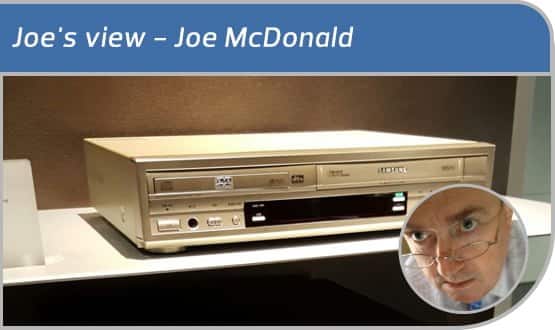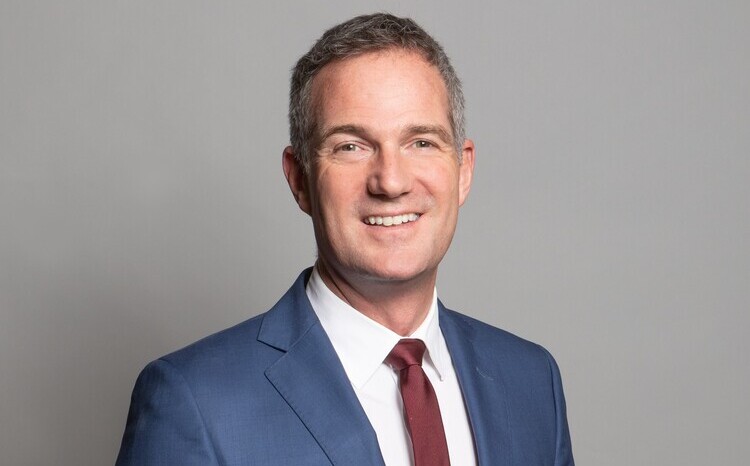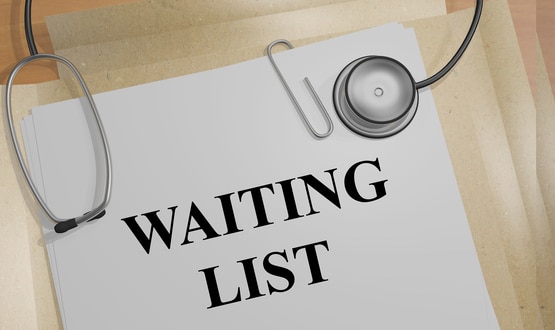Joe’s View: Privacy, where next?
- 9 February 2017

A fact-finding trip to Seoul has left Joe McDonald contemplating the quality of freedom and privacy back in the UK, and the difference between placing your trust in the citizen or the state.

At 35,000 Feet above Moscow a little turbulence rattled the ice in my gin and tonic as I reflected on my visit to South Korea and in particular the museum in Samsung’s Global Headquarters in Seoul. South Korea is a remarkable country full of remarkable, resourceful and charming people.
The country has gone from the third world to first world economic powerhouse in just 40 years, “The Miracle on the Han River” they call it. Meanwhile just 35 miles to the North, the people of North Korea remain oppressed, frequently hungry and devoid of basic human rights.
Freedom to choose
My mind went back to the pictured exhibit in the Samsung museum, a combined VHS and DVD player which clearly captures a tipping point in the history of video technology and also how nimble Samsung are in their product development. Not sure which way the video market is going to go? Doesn’t matter, we’ll design another one in 3 months when we have a better idea.
The freedom versus state oppression and central planning. No contest.
I was a little disappointed to find no wifi on board the flight so I couldn’t work during the 12-hour return trip. Never mind, plenty of inflight entertainment was available. By the time we were over Moscow I’d already watched Bridget Jones’ Baby (not bad) and a re-make of The Magnificent Seven (why would you do that?). I didn’t really fancy ‘Snowden’ but, hey-ho, still many hours to go.
Snowden above Moscow
‘Snowden’ is a biographical film of the events surrounding Edward Snowden, a young CIA agent who became disillusioned with the work of the NSA and eventually blew the whistle on America’s widespread intrusive surveillance operations which allowed government access to citizen communications on a massive scale. Snowden fled from Hawaii with material stolen from the CIA and went to Hong Kong where he shared all of the embarrassing truths with the Guardian Newspaper and then the world.
The resulting revelations sparked massive global outcry at industrial spying on their own citizens by the US and UK and renewed demands for citizen’s right to privacy and not be spied on by their governments.
Those in the know, started to put Elastoplast over the webcam on their laptops, as Mark Zuckerberg famously did. Oliver Stone’s direction of the film leaves the viewer in no doubt that Snowden should be regarded as a hero but the fact that Barak Obama’s government issued a warrant for his arrest as a traitor would suggest it is not quite as black and white as Stone would have it.
Care.data partly sunk by suspicion of surveillance state
Here in the UK the backlash of mistrust caused by our government’s complete disregard for our digital privacy rights, together with playing fast and loose with consent, helped scupper the Care.Data database, and has seen NHS Digital have three re-brandings in as many years.
And it turns out that the concerns of privacy campaigners about use health data by government agencies for purposes that have nothing to do with health were spot on.
NHS Digital gave Home Office details of 10,000 patients a year
NHS Digital’s former chairman is having his own ‘Snowden’ moment. The story quotes former NHS Digital Chairman, Kingsley Manning, stating that he felt pressured into releasing patient data to the home office at a scale of 10,000 patients per year, largely used to track immigrants.
He is also quoted as saying that new arrangements announced last month “maximise Home Office powers to the absolute Limit”.
Time to choose on privacy and consent
It strikes me that we have spent 10 years arguing the toss about privacy and consent models, maybe we are at the tipping point now where we have to choose which way to jump. VHS or DVD? North or South Korea?
Will the citizen become more and more relaxed about sharing their health data over the coming years, after all they’re letting it all hang out on Facebook and Twitter, right? We can just pass legislation that lets us use patients’ anonymised patient data however we want? If the Home Office want access to NHS data that’s OK, right? The innocent have nothing to fear, nothing to hide, right? Democracies always elect reasonable people, right?
Privacy of health data not an optional extra
It seems unlikely to me. A generation of digital natives is growing up who understand privacy, they’ve seen ‘Snowden’, he is a heroic figure for them. They have seen Zuckerberg’s Elastoplasted webcam and they look up to him. They are going to get more passionate about privacy, not less.
They’ve had their identity stolen, a card cloned, been fraped, trolled and they can explain two factor authentication to their parents? NHS Digital cannot afford to slip up with another approach to patient data from the Donald Trump school of seduction and ‘truth’.
We are, I think, at a tipping point alright and the next chief executive of NHS Digital will have to play a key role in deciding which way to go.
Can NHS Digital become the guarantor of patient privacy?
Is NHS Digital to be the champion and guarantor of information and data as the essential lifeblood of patient-centred, personalised health and care?
Will the next leader of NHS Digital ensure the organisation’s driving purpose is about empowering the individual to control their data and who gets to see and use it?
Or will NHS Digital be more statist, primarily inward looking, serving the health system and other arms of government. The agency clearly has a vital role to play in terms of providing data required for research, planning and operation of the health and care system, but how should it weigh these responsibilities against the rights of the citizen?
It’s a tricky balance, but might we get a leader who can deliver both for the nation and the individual citizen? Only if they understand that the secret of consent is to get consent. Freedom versus state oppression. No contest. Right?





10 Comments
You are absolutely right Dave, as might be expected given your experience. It is all about trust and 3 rebrandindings later , NHS Digital still don’t appear to get it. If they don’t get it soon I fear for the existence of NHS Digital and an opportunity will have been lost.
^ that should read “In my view, the existence of this MOU makes even harder …”
Sadly there’s no edit function showing!
^ that should read “In my view, the existence of this view makes even harder …”
Joe,
In a recent Westminster conference, I asked how we had got from the position where any release of patient data to the police at local level required a warrant signed by a magistrate to where 10,000 sets of data are routinely released to the Home Office and DWP for non-clinical use. I didn’t get a satisfactory answer.
Ironically, I was attending the conference as a patient on behalf of UseMYdata.org.uk which is all about making best use of Cancer Data – with effective safeguards.
In my view, the existence of this MoU makes the task of convincing an already sceptical public that their confidential records are safe in the hands of the NHS.
This is all about TRUST and my own TRUST was severely eroded when I first read of the existence of this MOU and these 10,000 releases per year of person identifiable data to the Home Office.
I am not an illegal immigrant, but I can imagine a scenario where people on the edges of society decide not to register with a GP or attend hospital because that would lead to a dawn raid and deportation.
The effects on public health could be catastrophic should a significant number of these enter the country whilst suffering from the early stages of a highly infectious, drug-resistance strain of TB or equally nasty disease and are left untreated in the community.
I would trust Google to GET IT DONE far more than I would trust NHS management.
Clive
“looking2support those of the front line”
The problem is that everyone has a different creepy line and as more and more people become switched on to privacy they will share less and less unless we come up with new ways of working.
From a healthcare point of view at present you are damned if you do and damned if you don’t. If you want healthcare you more or less have to surrender your data to the NHS unquestionably with its assumed consent models, Swiss cheese security and undefined and to be determined secondary uses which may or may not involve Google.
Even those who think they get consent are not. ” Allow my data to be used for research”. What research, when and by who? Will there be 3rd parties who store or process my data? How will it be used? Will they dispose of my data when they are finished? How can I hear about the results?
Worse still, if I ask for my own data back in a useful electronic format the average NHS department goes in to a flat spin, lost in a world of technology and governance that they don’t have the first clue about. What’s more this includes those people who are employed to specifically understand these things!
very worrying for those of us trying to build trust in local information sharing projects
If you want to see how HMG views patient confidentiality, then look at clause 31 of the Digital Economy Bill at https://services.parliament.uk/bills/2016-17/digitaleconomy.html. NHS Digital is merely the cats paw, The cabinet Office & HMG is the cat and its proposals as they stand now will effectively destroy the legal protection of patient data. The BMA reaction at https://www.bma.org.uk/news/2017/february/data-sharing-bill-threatens-patient-confidentiality?imgdoctors= is spot on. It’s an almost exact rerun of cl152 of the Coroner’s & Justice Bill 2009 almost exactly 8 years ago.
It’s not a Bill yet, so we still have a short time in which to act ….
https://citizenfourfilm.com
Instead of Snowden watch Citizenfour which is mostly the actual footage of Snowden’s discussions with journalists. No idea why they made the film ‘Snowden’ when this is available. Vanity, I guess. Oh well, watch it, please- chilling.
Comments are closed.